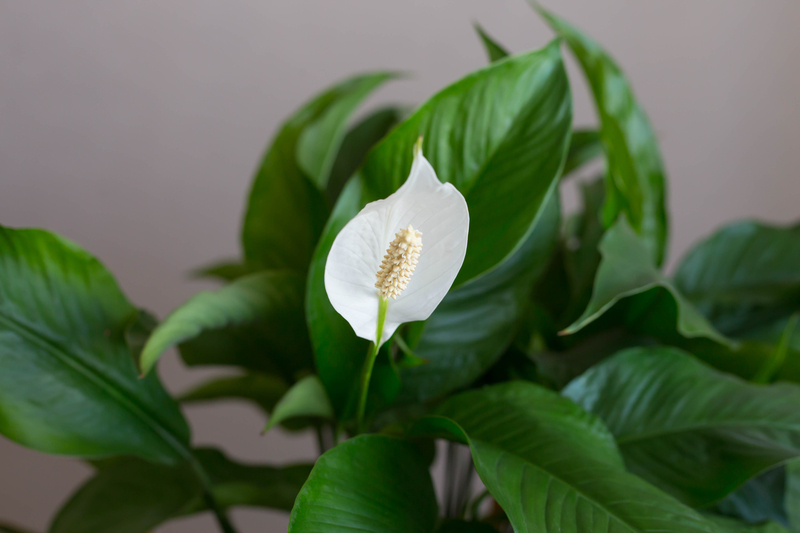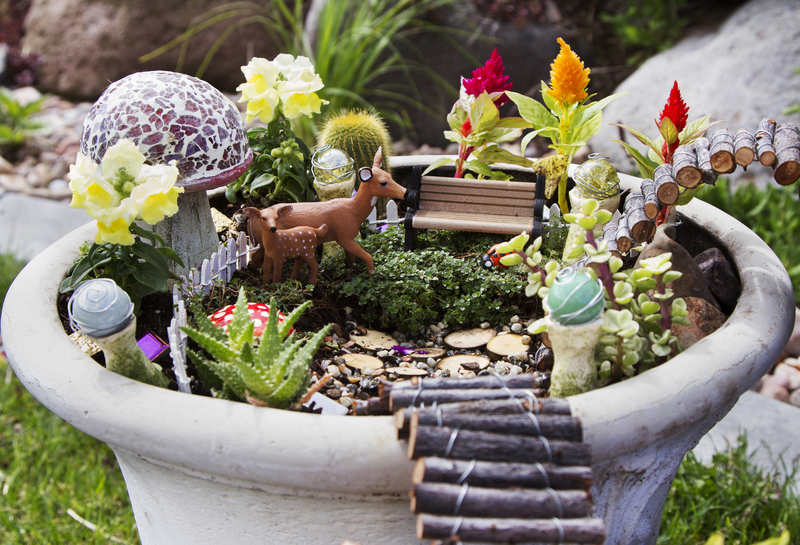9 Must-Know Gardening Tips for New Enthusiasts
Posted on 18/08/2025
9 Must-Know Gardening Tips for New Enthusiasts
If you've recently discovered your passion for gardening and want to cultivate a healthy, thriving garden, you're in the right place. Knowing the right gardening tips for beginners can make all the difference between a flourishing display of blooms and a disappointing patch of weeds. In this comprehensive guide, we'll share nine essential tips every new gardening enthusiast should know, offering practical advice, expert knowledge, and best practices to set you on the path to gardening success.
1. Know Your Gardening Zone and Climate
Understanding your gardening zone is the cornerstone of successful gardening. Planting crops suited for your region ensures a longer-lasting, hardier garden.
Why Is This Important?
- Plant Hardiness Zones: Use the USDA Plant Hardiness Zone Map or your local equivalents to determine which plants will thrive in your area.
- Seasonal Guidance: Knowing your zone helps you plan your planting and harvesting schedules.
- Climate Adaptation: Select plants that are naturally adapted to your local weather, including rainfall and temperature variations.
Tip: Consult your local nursery or extension office for advice tailored to your specific region.

2. Start Small and Gradually Expand
When venturing into gardening for the first time, resist the temptation to take on too much. Starting with a manageable plot will set you up for success and prevent overwhelm.
How to Begin Small
- Container Gardening: Use pots or raised beds to keep your first garden contained and easy to manage.
- Limited Plant Variety: Begin with a few reliable, easy-to-grow plants, such as lettuce, tomatoes, or marigolds.
- Evaluate as You Go: Expand your gardening space and diversify only after you've mastered the basics.
Remember: A strong foundation makes future gardening efforts more rewarding and less stressful.
3. Invest in Quality Soil and Prepare It Well
Good soil is the lifeblood of every successful garden. The healthier your soil, the more robust your plants will be.
Steps for Soil Preparation
- Test Your Soil: Use a soil kit to check pH levels and nutrient content.
- Add Organic Matter: Mix in compost, aged manure, or leaf mold to improve structure and fertility.
- Ensure Proper Drainage: Avoid waterlogging by using raised beds or amending heavy clay soil with sand and mulch.
A good rule of thumb: Healthy soil breeds healthy plants.
4. Choose the Right Plants for Beginners
For novice gardeners, certain plants are easier to grow and more forgiving of minor mistakes. Choosing wisely will help keep your confidence high.
Top Beginner-Friendly Plants
- Vegetables: Radishes, lettuce, spinach, zucchini, green beans.
- Herbs: Basil, parsley, mint, chives, thyme.
- Flowers: Marigolds, sunflowers, zinnias, pansies, nasturtiums.
Expert tip: Read plant labels and seed packets carefully--they offer valuable information about sunlight, spacing, and watering needs.
5. Master the Basics of Watering
Watering is critical, but it's easy to overdo or underdo it. Developing consistent watering habits is one of the most crucial gardening tips for beginners.
Proper Watering Techniques
- Check Soil Moisture: Before watering, stick a finger an inch into the soil. If it feels dry, it's time to water.
- Water Early or Late: Water in the morning or evening to minimize evaporation and plant stress.
- Deep, Infrequent Watering: Soak the soil thoroughly but less often to encourage deep root growth.
- Avoid Wetting Foliage: Water at the soil base to prevent leaf diseases.
Remember: More plants die from overwatering than underwatering!
6. Feed Your Plants Wisely With Fertilizers
All plants need nutrients to flourish. However, using the right fertilizer at the correct time ensures robust, healthy growth.
Fertilizing Best Practices
- Test First: Only apply fertilizers when you know your soil needs them.
- Organic Fertilizers: Opt for compost, worm castings, or well-rotted manure for sustainable, gentle feeding.
- Follow Instructions: Over-fertilizing can harm plants--always adhere to package guidelines.
- Understand Plant Needs: Leafy greens need more nitrogen, while fruiting plants benefit from phosphorus and potassium.
Pro tip: Organic matter not only feeds plants but also improves soil health over time.
7. Practice Effective Pest and Disease Management
New gardeners are often surprised by how quickly pests and diseases can take hold. Vigilance and preventive measures are your best defense.
Natural Pest Control Strategies
- Identify Early: Regularly inspect plants for spots, holes, or unusual growths.
- Encourage Beneficial Insects: Ladybugs, lacewings, and bees are natural allies; plant flowers that attract them.
- Rotate Crops: Changing plant locations annually helps prevent persistent soil-borne pests and diseases.
- Use Barriers: Row covers or mesh netting keep larger pests away without chemicals.
Remember: Prevention is better than cure. A healthy plant is less susceptible to attacks.
8. Learn the Importance of Mulching
Applying mulch may seem like an extra step, but it's one of the best garden maintenance tips every enthusiast should adopt.
Benefits of Mulching
- Conserves Soil Moisture: Reduces water evaporation, saving you time and energy.
- Suppresses Weeds: Blocks sunlight, hindering weed growth naturally.
- Moderates Soil Temperature: Keeps roots cooler in summer and warmer in winter.
- Improves Soil Quality: Organic mulches decompose, adding nutrients to your soil.
Tip: Wood chips, straw, grass clippings, and shredded leaves make excellent organic mulches.
9. Keep a Gardening Journal and Continue Learning
The most successful gardeners document their progress, observations, and results. A gardening journal not only tracks what's working and what isn't, but also helps you plan for the future.
What to Record?
- Weather Patterns: Note rainfall, cold snaps, and heatwaves for long-term planning.
- Planting Dates: Track when and where you planted various species.
- Successes and Failures: Mark which varieties performed well, and which struggled.
- Lessons Learned: Jot down tips, tricks, and advice you collect from experience or fellow gardeners.
Commit to lifelong learning--read books, attend workshops, join a local gardening club, or follow garden blogs for ongoing advice and inspiration.

Extra Gardening Tips for Enthusiasts
- Tool Care: Keep your gardening tools clean and sharp for safer, more effective use.
- Companion Planting: Some plants grow better together. For instance, tomatoes and basil indulge in mutual benefits.
- Patience Is Key: Gardens take time to mature, so don't get discouraged by initial setbacks.
- Enjoy the Process: Take pride in your progress and celebrate every sprout and blossom.
Conclusion: Start Growing Your Green Thumb Today!
Embarking on your gardening journey can be incredibly rewarding. By following these 9 must-know gardening tips for new enthusiasts, you'll build the skills, confidence, and know-how to create a beautiful, bountiful garden--no matter the size of your space. Remember, every garden is unique, and the best way to become a knowledgeable gardener is through practice, observation, and a willingness to learn continuously.
Take the first step, get your hands dirty, and enjoy the many rewards of gardening!
If you found these essential gardening tips beneficial, don't forget to share this article with friends and family who are eager to start their own garden adventures.
Latest Posts
Expert Advice: 3 Tips for Winning the War on Weeds
Transform Your Garden into a Child's Dream Playland
Cold-Weather Strategies for Garden Protection

